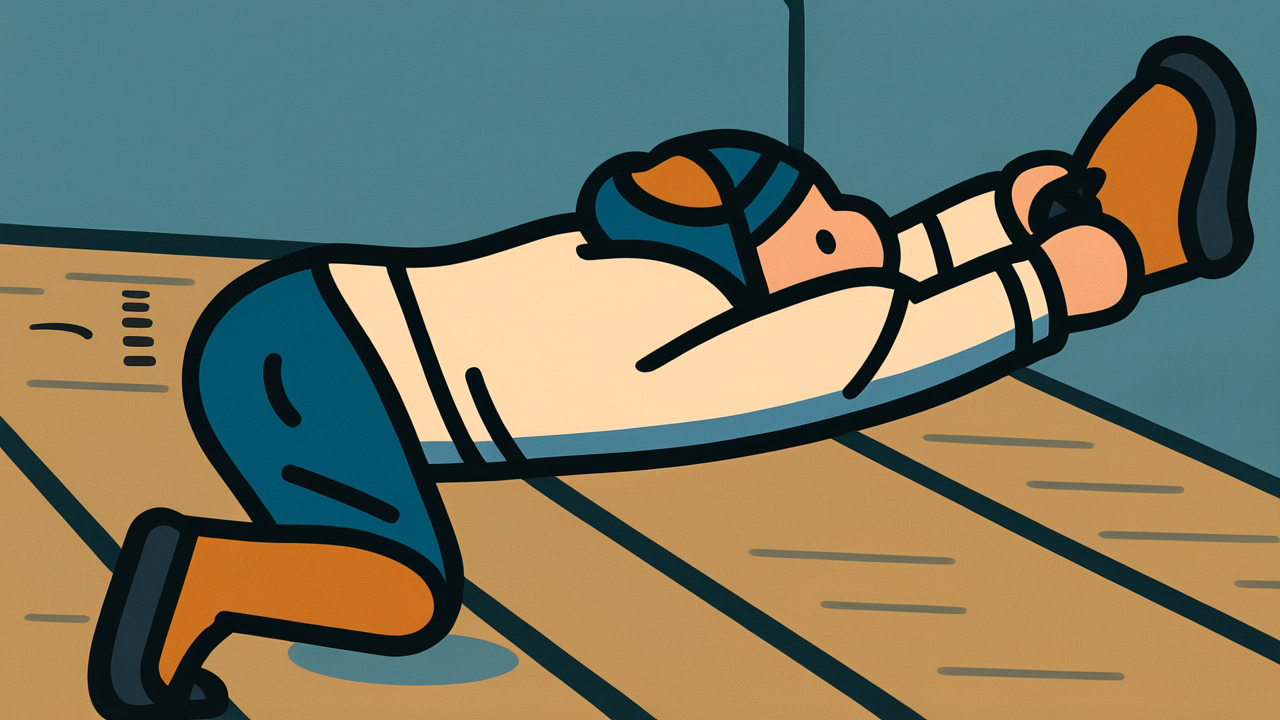How to Read “転んでもただでは起きない”
koron demo tada dewa okinai
Meaning of “転んでもただでは起きない”
This proverb expresses a shrewd and positive attitude of always trying to gain some benefit or harvest even when encountering failure or unfortunate events.
Using physical misfortune of falling as an example, it shows the mental toughness of not settling for “just” (free of charge/without benefit) when getting back up, but always trying to grasp something when rising. This doesn’t mean simple optimism, but rather signifies the proactive ability to turn difficult situations to one’s advantage.
It is used in situations such as business failures, relationship troubles, unexpected expenses, and other various “losses,” to express the attitude of trying to find some learning or benefit from those situations. The reason this expression is used is because it’s rooted in the practical Japanese values of “disliking waste and trying to utilize everything.” Even today, it’s used to express the creativity to turn pinches into chances and the strength to use adversity as nourishment.
Origin and Etymology
Regarding the origin of “Even if fall down not for free get up,” no clear documentary evidence has actually been found. However, looking at the structure of this proverb, it’s thought to have been born as an expression of the Japanese merchant spirit and practical way of thinking.
Considering the historical background of the flourishing merchant culture during the Edo period, the spirit of “even if you lose, try to gain some profit” was highly valued among merchants. By using the everyday occurrence of falling as a metaphor, it became established as an expression that anyone could easily understand.
The “tada” in “tada dewa okinai” means “for free” or “without gaining anything,” and is an expression that has been used since ancient times. It expresses the toughness of turning even the unfortunate event of falling into some kind of benefit.
While the period when this proverb appeared in literature is uncertain, it’s presumed to have spread from the mid-Edo period onward when commerce developed. Rather than expressing the physical action of actually falling, it has been cherished among common people as a word expressing mental attitude and life philosophy.
Usage Examples
- He was laid off from his company, but since he’s the type who follows “even if fall down not for free get up,” he’ll surely find new business opportunities
- I suffered losses in investments, but with my “even if fall down not for free get up” personality, I intend to connect this experience to future success
Modern Interpretation
In modern society, this proverb has gained new interpretation. Particularly in the context of startup culture and entrepreneurial spirit, it’s being reevaluated as “learning from failure” and “pivot thinking.” It’s very close to Silicon Valley’s “Fail Fast, Learn Fast” philosophy and is gaining attention as an attitude of challenging without fearing failure and creating value from it.
In the SNS era, more people are utilizing even their personal failure experiences as content, turning them into tools for creating empathy with followers. This can truly be called the modern version of the “even if fall down not for free get up” spirit.
However, caution is also needed with this way of thinking. If the attitude of trying to convert all failures into profit goes too far, there’s a danger it could lead to “disaster profiteering” behavior that exploits even others’ misfortunes for one’s own benefit. In modern times, the “shrewdness” of this proverb is sometimes viewed critically.
However, in modern society where economic instability is increasing, such flexibility and adaptability are being reconsidered as necessary skills. As wisdom for surviving in times of rapid change, such as the spread of remote work, the normalization of side jobs, and the diversification of careers, the value of this proverb is increasing.
When AI Hears This
When humans actually fall, the brain instantly analyzes “why did I fall?” and corrects movement patterns to avoid falling in the same situation next time. This learning process is remarkably similar to the psychological behavior of trying to gain something from failure.
During a fall, the cerebellum processes balance information within about 100 milliseconds and adjusts muscle coordination patterns. In other words, it converts the “loss” of falling into the “gain” of better body control.
What’s fascinating is that these same neural circuits are activated when dealing with psychological failures. Brain imaging studies show that when people who have failed at work think “I’ll do it this way next time,” the same frontal lobe and cerebellar regions light up as in motor learning.
Even more noteworthy is survey data showing that gymnasts with extensive falling experience have higher problem-solving abilities in daily life. The repeated cycle of physical “fall → recover” strengthens the brain’s “failure → improvement” circuits.
This proverb captures the brain’s inherent ability to “transform errors into resources.” The mechanism for overcoming the physical crisis of falling is the same as the mental mechanism for overcoming life’s difficulties, which is likely why this expression emerged and continues to resonate with so many people.
Lessons for Today
What this proverb teaches modern people is the importance of “the power to change perspective.” The same event can become either a loss or a benefit depending on how you look at it. This flexible thinking is an important skill for surviving in rapidly changing modern society.
Specifically, viewing unemployment as an opportunity to consider a new career, or using relationship troubles as a chance to reflect on oneself. The attitude of accumulating even small daily failures as experience points is important.
However, the essence of this proverb is not simple optimism. When facing difficult situations, what’s important is not just enduring, but the ability to actively try to grasp something. In modern times, it’s required to demonstrate this “shrewdness” while maintaining dignity.
Life inevitably has unexpected “falls.” But such times are exactly when opportunities arise. When you get back up, try looking around a bit. You’ll surely find new discoveries and learning lying around.



Comments